|
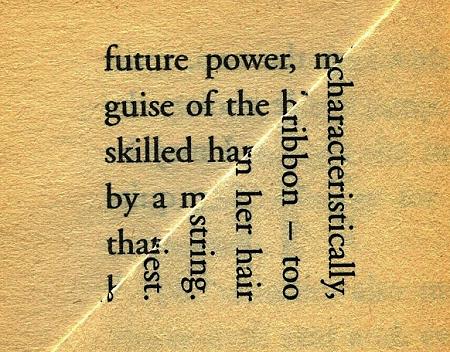
Photographs from "Dog Ear"
Erica Baum
The sutured text
On Erica Baum's imaged pages
Kaegan Sparks
jacket2
(....)Her most recent project, Dog Ear .... imaging pages from unidentified paperback books. Each photograph is formally consistent: a diagonal fold from upper right to lower left corner peels back the page to reveal both the text on its reverse side and that of the page underneath. This simple maneuver, conventionally functioning to mark a reader’s place, is under Baum’s lens a complex syncopation; a new text sutured from discontinuous lines torques prose toward prosody at a crude right angle.
Geometrically speaking, the new lay of the language — confounding comings and goings as it seeps from two directions into an eliding cleft — is a familiar but intriguing ravel. In beginning to grapple with the disjointed poems Erica has in effect created (and she has openly identified her text work with poetry in the past), I found a constructive byway in transcription. Hazarding to reclaim some left-right, top-bottom continuity, rewriting her lines pulls them into another particular formal disposition: right triangles, tapering from the first and longest composite line down to the murmur of the final fragment, nearly completely obscured by the fold. ...(more)
_______________________
Lessons from 10 years of Pepys's diaries online
Pepys’ Diary
_______________________

Exhumation of the Mastadon
1805-1808
Charles Willson Peale
b. April 15, 1741
_______________________
Google Book Search in the Gridlock Economy
Douglas Lichtman
Abstract:
Michael Heller’s The Gridlock Economy popularizes a concept that Heller has developed over nearly two decades of influential academic writing: the notion that, when it comes to property rights, too many rights-endowed cooks really can spoil the broth. I was asked in this conference to apply Heller’s insight to the Google Book Search project, and the request at first seemed natural. Heller himself suggested that Google Book Search might be an apt poster child for the gridlock phenomenon; Google likewise can often be heard to complain, in Heller-esque tones, that the only way to build a comprehensive search engine for books is to take the books without asking. This Essay, however, questions the example and offers a refinement on Heller’s theory. Gridlock, I argue, is not simply a catch-all for situations where a large number of permissions are in play. It is more narrowly a reference to situations where a large number of permissions are in play, and those permissions intertwine.
Social Science Research Network
via Charles W. Bailey, Jr.'s DigitalKoans
_______________________
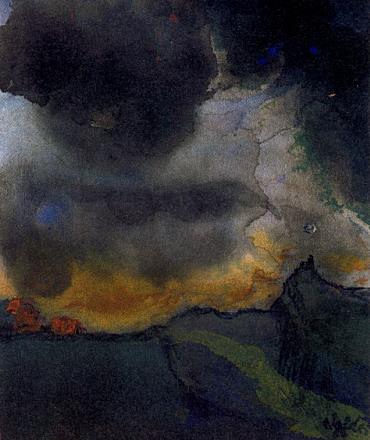
Emil Nolde
1867-1956
_______________________
NationalPoetryMonth.ca
a visual poem a day by Eric Zboya, Camille Martin, Gil McElroy, Mįrton Koppįny, Matthew Stolte, Reed Altemus, Satu Kaikkonen, mIEKAL aND, andrew topel, Bob Grumman, Helen Hajnoczky, Joel Lipman, Aileen Beno, Vern Frazer, Bill DiMichele, Chad Lietz, Anatol, Christine McNair, Gary Barwin, Pearl Pirie, John M. Bennett, Marcus McCann, Geof Huth, John C. Goodman, derek beaulieu, Megan Zucher, Sheila E. Murphy, Lily Robert-Foley, kevin mcpherson eckhoff, and Michčle Provost. a presentation by AngelHousePress
_______________________
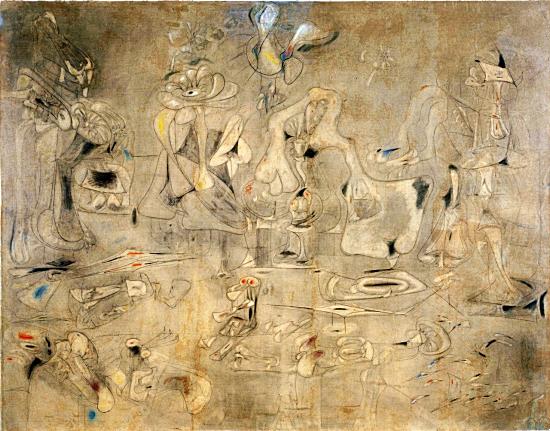
Summation
1947
Arshile Gorky
b. April 15, 1904

Avenue des Gobelins
1925
Eugène Atget
1857 - 1927
494 Selected Images
George Eastman House
_______________________
Canon Fodder: Authoring Eugène Atget
Abigail Solomon-Godeau
mediafire pdf
The question is: if Eugène Atget had not existed, would he have had to be invented? Such a question ought not be dismissed out of hand as a frivolous one. For if we remark upon the astonishingly perfect fit between the requirements of late modernist photographic theory (requirements that are institutional, canonical, and discursive in nature) and the way Atget appears now to fulfill them so satifyingly, so naturally, we may gain a clearer sense of how authors are constructed, how canons are constructed, and what interests are served in these two overlapping critical enterprises. In other words, in focusing attention on how Atget is both currently and historically represented, rather than gamely contributing to the uncritical ratification of what I maintain is a process, we will be provided with a clear example of how discourse defines its own object - how, with regard to the specific instance of Atget, cultural production is organized, described, and finally perceived to conform to the needs, myths, and desires of those individuals and institutions empowered to define how cultural production will be understood.
_______________________
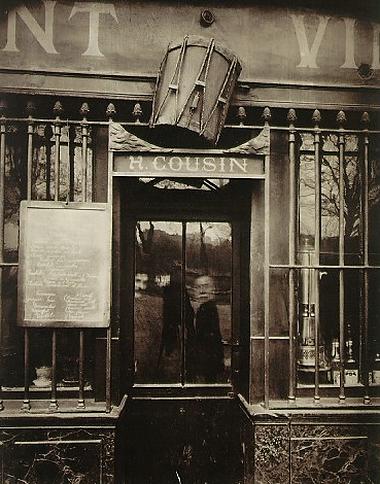
Au Tambour
Eugène Atget
1908
_______________________
Privacy, Secrecy, Intimacy, Human Bonds–and Other Collateral Casualties of Liquid Modernity
Zygmunt Bauman
The Hedgehog Review
And so the initiation of the confessional society was the moment of the ultimate triumph of privacy, that foremost modern invention—though also the beginning of its vertiguous descent from the peak of its glory. The hour of its Pyrrhic, to be sure, victory: privacy invaded, conquered, and colonized the public realm at the expense of losing its autonomy—its defining trait and the most cherished and most hotly defended privilege.
But let us begin from the beginning, better to comprehend the present-day twists of the plot.
(....)
To stand a chance of being noted at all, electronic messages tend to be shortened and simplified, in order to deliver all their content before attention breaks away and drifts elsewhere—a necessity that makes them utterly unsuitable for conveying profound ideas needing reflection and contemplation to be absorbed. The tendency to shorten and simplify messages, to make them ever more shallow and therefore yet more amenable to surfing, marks from the start the brief yet stormy history of the World Wide Web. From elaborate, thoughtful letters to e-mails, from there to yet more curtailed and simplified mobile phone messages, and finally to “twittering” admitting no more than 140 digits. If you apply the Darwinian principle of the “survival of the fittest” to the electronic world, the information most likely to reach human attention is the shortest, the shallowest, and the least burdened with meaning: sentences rather than elaborate arguments, single buzz-words rather than sentences, “sound-bites” rather than words. The price we all pay for having more information “available” is the shrinking meaning of its content; the price of its ready availability is a radical reduction of its significance.
The other, though closely related, ambivalence endemic to the new information technology is the immense facilitation of community formation arriving in a package-deal with the equally immense facilitation of its dismantling. Users of Facebook boast of making half a thousand “new friends” in a day—more than I’ve managed in an eighty-five-years-long life. But doesn’t this signal that when speaking of “friends,” we have in mind quite different kinds of relationship?
Unlike the formation for which the name “community” (or for that matter any other concept referring to the public side of human existence, the “totality” of human association) had first been coined, internet “communities” are not meant for durability, let alone being commensurate with the duration of time....(more)
_______________________

Ragpicker's Hut
Eugène Atget
1912
_______________________
The luster of listening.
Or what we hear in poetry is groans from the battlefield where time struggles against space.
-
Robert Kelly, Statement For The Modern Poetry Conference At Cuny
in The Green Door - issue 3Robert Kelly
Kari Bert - Mira Borghs - Adam Rudden
A. S. Klein – Michael H. Brownstein - Martin Burke
_______________________
Biography of Sleep
Ale Debeljak
Translated from the Slovenian by Brian Henry
1.
Shadows are thickening‚ the long backs of hills plunge
into the ocean’s waves‚ the drone of a trumpet solo
is heard. Perhaps it comes from a transistor.—
Somewhere at the edge of the visible world the hidden
power of melancholy is lost in the quicksand of Maghreb.
—Noon throbs metallic. Veterans sleep in wicker rocking
chairs. Their shoes’ soft leather smells perhaps of resin
and of punitive journeys. —Ripe fruit lies in the burnt
grass of the garden. The white walls of small houses
shiver from the heat‚ lethargy corrodes the officer’s liver.
And turns it into a catalog of plants. —One of them
recites Dante. Many deaths slowly gather in him.
2.
Clock hands have been still for years. Young roe deer
are frozen in lithographs. —Reports continue. —And
fermented fruit goes to the head: in weightless dizziness
there is a mirage. Which multiplies with recent encounters
with the theory of poison. Many times. No surprise: memory
melts like wax. The magnetic circle of crime is now stronger
than gravity. Nothing unusual. If pigeons flutter in dreams‚
they retreat at once into oblivion. —This instant‚ when the air
trembles with fervor: all places trick the memory on times
passed‚ variations of murder‚ the symmetry of slow deaths.
All of these. And the human trace is tattooed with a green snake
head‚ burning with a wish to break through the sound barrier.
...(more)
Daily Poems
National Poetry Month 2011
boston review
_______________________

Ragpicker
Eugène Atget
1899-1900
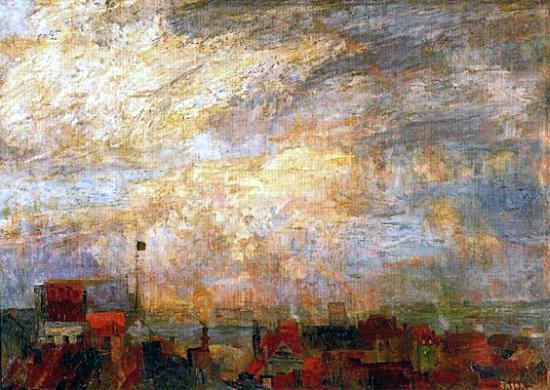
Rooftops of Ostend
James Ensor
1884
_______________________
Imagination Dead Imagine
Samuel Beckett
No trace anywhere of life, you say, pah, no difficulty there, imagination not dead yet, yes, dead, good, imagination dead imagine. Islands, waters, azure, verdure, one glimpse and vanished, endlessly, omit. Till all white in the whiteness the rotunda. No way in, go in, measure. Diameter three feet, three feet from ground to summit of the vault. Two diameters at right angles AB CD divide the white ground into two semicircles ACB BDA. Lying on the ground two white bodies, each in its semicircle. White too the vault and the round wall eighteen inches high from which it springs. Go back out, a plain rotunda, all white in the whiteness, go back in, rap, solid throughout, a ring as in the imagination the ring of bone. The light that makes all so white no visible source, all shines with the same white shine, ground, wall, vault, bodies, no shadow. Strong heat, surfaces hot but not burning to the touch, bodies sweating. Go back out, move back, the little fabric vanishes, ascend, it vanishes, all white in the whiteness, descend, go back in. Emptiness, silence, heat, whiteness, wait, the light goes down, all grows dark together, ground, wall, vault, bodies, say twenty seconds, all the greys, the light goes out, all vanishes. At the same time the temperature goes down, to reach its minimum, say freezing-point, at the same instant that the black is reached, which may seem strange. Wait, more or less long, light and heat come back, all grows white and hot together, ground, wall, vault, bodies, say twenty seconds, all the greys, till the initial level is reached whence the fall began....(more)
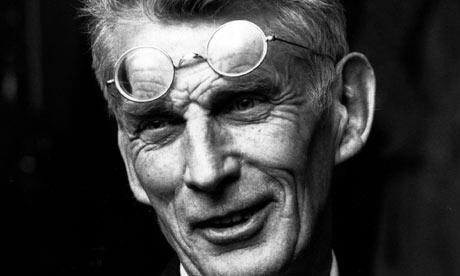
Samuel Beckett
b. April 13, 1906
It is better to adopt the simplest explanation, even if it is not simple, even if it does not explain very much. A bright light is not necessary, a taper is all one needs to live in strangeness, if it faithfully burns.
- Malone Dies
How It Was - A memoir of Samuel Beckett
Anne Atik mediafire pdf
Samuel Beckett On-Line Resources
Samuel Beckett: Apmoniathe modern word_______________________

Styron walking with Aquinnah
Roxbury, Connecticut
April 29, 1979
photo by Jill Krementz
"For the last few months, whenever I have been home--which has been most of the time--I have been accustomed to taking long daily walks with my dog Aquinnah. Our walks are for business and for pleasure, and also for survival--interlocking motives that have somehow acquired nearly equal importance in my mind.
Without a daily walk and the transactions it stimulates in my head, I would face the first page of cold blank paper with pitiful anxiety."
Excerpted from Havannas in Camelot: Personal Essays
Top Dogswriters and their dogs Jill Krementz Photo Journal
_______________________
Digging
Seamus Heaney
born 13 April 1939
Between my finger and my thumb
The squat pen rests; as snug as a gun.
Under my window a clean rasping sound
When the spade sinks into gravelly ground:
My father, digging. I look down
Till his straining rump among the flowerbeds
Bends low, comes up twenty years away
Stooping in rhythm through potato drills
Where he was digging.
The coarse boot nestled on the lug, the shaft
Against the inside knee was levered firmly.
He rooted out tall tops, buried the bright edge deep
To scatter new potatoes that we picked
Loving their cool hardness in our hands.
By God, the old man could handle a spade,
Just like his old man.
My grandfather could cut more turf in a day
Than any other man on Toner's bog.
Once I carried him milk in a bottle
Corked sloppily with paper. He straightened up
To drink it, then fell to right away
Nicking and slicing neatly, heaving sods
Over his shoulder, digging down and down
For the good turf. Digging.
The cold smell of potato mold, the squelch and slap
Of soggy peat, the curt cuts of an edge
Through living roots awaken in my head.
But I've no spade to follow men like them.
Between my finger and my thumb
The squat pen rests.
I'll dig with it.
_______________________
Lessness
Samuel Beckett
Ruins true refuge long last towards which so many false time out of mind. All sides endlessness earth sky as one no sound no stir. Grey face two pale blue little body heart beating only up right. Blacked out fallen open four walls over backwards true refuge issueless.
Scattered ruins same grey as the sand ash grey true refuge. Four square all light sheer white blank planes all gone from mind. Never was but grey air timeless no sound figment the passing light. No sound no stir ash grey sky mirrored earth mirrored sky. Never but this changelessness dream the passing hour.
He will curse God again as in the blessed days face to the open sky the passing deluge. Little body grey face features slit and little holes two pale blue. Blank mind.
Figment light never was but grey air timeless no sound. Blank planes touch close sheer white all gone from mind. Little body ash grey locked rigid heart beating face to endlessness. On him will rain again as in the blessed days of blue the passing cloud. Four square true refuge long last four walls over backwards no sound....(more)
_______________________
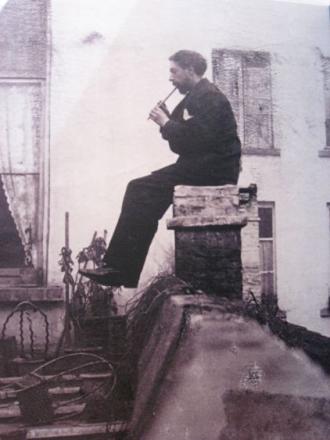
James Ensor
b. April 13, 1860
_______________________
Stirrings still
Samuel Beckett
(....)
So on till stayed when to his ears from deep within oh how and here a word he could not catch it were to end where never till then. Rest then before again from not long to so long that perhaps never again and then faint from deep within oh how and here that missing word again it were to end where never till then. In any case whatever it might be to end and so on was he not already as he stood there all bowed down and to his ears faint from deep within again and again oh how something and so on was he not so far as he could see already there where never till then? For how could even such a one as he having once found himself in such a place not shudder to find himself in it again which he had not done nor having shuddered seek help in vain in the thought so-called that having somehow got out of it then he could somehow get out of it again which he had not done either. There then all this time where never till then and so far as he could see in every direction when he raised his head and opened his eyes no danger or hope as the case might be of his ever getting out of it. Was he then now to press on regardless now in one direction and now in another or on the other hand stir no more as the case might be that is as that missing word might be which if to warn such as sad or bad for example then of course in spite of all the one and if the reverse then of course the other that is stir no more. Such and much more such the hubbub in his mind so-called till nothing left from deep within but only ever fainter oh to end. No matter how no matter where. Time and grief and self so-called. Oh all to end. ...(more)
_______________________

photo - mw
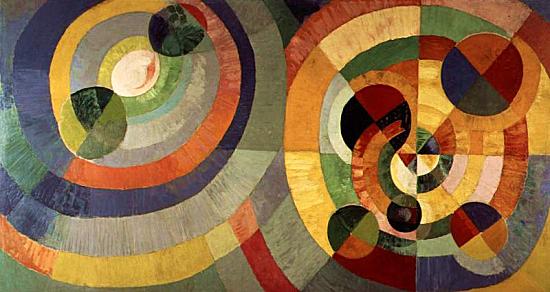
Robert Delaunay
b. April 12, 1885
_______________________
Poems by Ismar Tirelli Neto
Translated by Farnoosh Fathi
Afternoon Poem
(....)
I’ve taken to giving little yelps on the street
as
I’m walking it suddenly ebbs
AH
(german, operistic)
we are interesting
we make things that are interesting
we hope that one day
they’ll matter
what fun
now if you really rely on the non-historicity of the sign
then you are a fool of the first order
polysemy’s where it’s at
kneading bread with empty beer bottles
(great comic potential there!)
down with the tyranny of function
what is it good for how go about it?
things have much more being
when seen as sociological trifle
and I am very sick of me
what is it good for how go about it?
...(more)
New Brazilian poets
Farnoosh Fathi Jacket2
_______________________

La verseuse
Robert Delaunay
1916
_______________________
The Waste Land
John Beer
(....)Contemporary fascination
with corporal preservation
recapitulates the ancient
ceremonies of atonement,
or so, at least, it seems to me,
as I lecture empty rooms
on F.H. Bradley and the moon.
Not the moon you lovers see,
the moon as it appears to me
and me alone, my eyes refined
by distillation in the mind.
My moon rains light through long night hours
awake within the prison tower
of internal experience,
the tower holding thief and prince,
stockbroker and the child of fame,
identically, but not the same.
One hears the scraping of the key.
One wishes one were one, not me.
...(more)
The Waste Land and Other Poems
John Beer Canarium Books
John Beer at the Poetry Foundation
_______________________
From Copyright to Copia:
Marcus Boon's Buddhist Ontology of Copying
David Banash reviews Marcus Boon, In Praise of Copying
pmc
Notions of the self as something utterly unique inform not only philosophy and culture from the Romantics to the present, but also paradoxically fuel our ubiquitous advertising of mass-produced copies. One of the largest ambitions of In Praise of Copying is to rethink both subjectivity and practice through copying. Boon articulates this is in different ways throughout the book. For instance, in noting how capitalism has limited copia, he turns to the varied ways that Marxists gesture towards the masses, the proletariat, or the people, including Michael Hardt and Antonio Negri's concept of the multitude. Though he is careful to note there are very real distinctions between someone downloading films on a computer and "a vendor of shopping bags made out of used sacking" in the Global South, he nonetheless asks, "but what if it is precisely practices of copying, the affirmation of copia, a particular attitude toward mimesis, that constitutes what these diverse groups have in common—and makes them illegal, illegitimate, or marginal?". Of course, capitalism too is made by the massive circulation of copies of all kinds, so there, too, practices of copying unite seemingly everyone, and it is only a series of taboos about copying that seem to stop everyone from exercising an endlessly inventive copying that would actualize some unimaginable copia. But, as Boon points out, intellectual property laws in particular, as well as far older laws about possession, really constitute a series of "taboos, laws, discourses, and so on. Such framings, which are eminently ideological but which are presented as natural, manipulate our fears of the remarkable plasticity of mimesis". It is here that Boon's Buddhist views are most powerful, for rather than simply sweeping away such laws and taboos, or calling for a revolution, Boon suggests that we should approach their transformation through a kind of devotional practice:
we are afraid that if we opened ourselves to these transformative flows, we would be destroyed in an explosion of violence; but according to Buddhist tradition, this opening up, if done in a disciplined and accurate way, beginning with ourselves, also develops our capacity for a vast compassion for other beings also undergoing these processes of transformation.
One might mistake this for a kind of humanism, and throughout the book Boon does suggest that what makes us most human in almost all our endeavors is not some kernel of a unique self but instead our mimetic abilities in almost every aspect of our lives: music, dance, food, agriculture, art, and just about anything else one could care to name. But this is hardly a human phenomenon. As Boon argues, copying is everywhere in nature, and especially in mass production and reproduction both human and beyond: "Reproduction, in the visible world of insects, mammals, and plants, as well as in the invisible-to-the-naked-eye world of microoganisms, occurs mostly through a proliferation of apparently identical organisms, seeds, and spores". Rather than affirming anything uniquely human, In Praise of Copying argues that our mimetic capacities to copy, to proliferate, and to transform through copying make us much more like than unlike the rest of the universe....(more)
In Praise of Copying
Marcus Boon google books
mediafire pdf
_______________________

Edward Gorey
Writers and Kitties
via
_______________________
Silo Psychosis
Fabienne Collignon
ctheory
(....)The interface relating cultivation and homeland security does not simply materialise in concrete structures; it also sits at the heart of America's mythologies of creation, such as in Thomas Jefferson's thinking which shadows Cold War National Security directives issued to step up the production of engines that are concurrently stratospheric and implanted in the earth. These are the "mythic dimensions" of total war, of the cold climate sustained by machine-plants, internal yet external; the spaces they leave behind as they reach the end-points of their respective abbreviated life-spans are now, in the era of the colour-coded escalation curve, appropriated as real estate as their vacated interior is still bound to the need to seek "a place of sheltering from disaster".
The retrofitting of decommissioned installations functions like a twin impulse to the exploration of ruins, both endeavours that are propagated through the web of postmodern technologies developed during the Cold War. The politics of such forums is, at times, difficult to gauge because of the meshing of superpower longings, Americanism and vague, almost unconscious, critique on the one hand, and, on the other, the compromised protest-reclamations of individuals, like Ed Peden, situated at the forefront of silo retrofit usage. The ramifications of this desire -- to enter and/or inhabit Cold War technology -- emerge from the same roots: the fantasies of absolute mastery that are at once nostalgic and paranoid. Against the scope of creeping war machines and phantom invasions, the compressed steel cylinders assist the transferral of emergency conditions into a private homeland security that matches the state's hysteric, prismatic infrastructure. The requisition of derelict equipment, evidence of which is available at the speed of war, terminates this project; the rainbow-coloured threat effortlessly dyes the monochromatic dreamworlds of nuclear weapons installations. ...(more)
_______________________
Violence and the Sacred
Rene Girard
Translated by Patrick Gregory
ifile pdf
_______________________
Cultures of Fear: A Critical Reader
edited by Uli Linke and Danielle Taana Smith
mediafire pdf

photo - mw
_______________________
The Topography of History
Thomas McGrath
All cities are open in the hot season.
Northward or southward the summer gives out
Few telephone numbers but no one in our house sleeps.
Southward that river carries its flood
The dying winter, the spring’s nostalgia:
Wisconsin’s dead grass beached at Baton Rouge.
Carries the vegetable loves of the young blonde
Going for water by the dikes of Winnetka or Louisville,
Carries its obscure music and its strange humour,
Its own disturbing life, its peculiar ideas of movement.
Two thousand miles, moving from the secret north
It crowds the country apart: at last reaching
The lynch-dreaming, the demon-haunted, the murderous virgin South
Makes its own bargains and says change in its own fashion.
And where the Gulf choirs out its blue hosannas
Carries the drowned men’s bones and its buried life:
It is an enormous bell, rung through the country’s midnight.
***
Beyond the corrosive ironies of prairies,
Midnight savannas, open vowels of the flat country,
The moonstruck waters of the Kansas bays
Where the Dakotas bell and nuzzle at the north coast,
The nay-saying desolation where the mind is lost
In the mean acres and the wind comes down for a thousand miles
Smelling of the stars’ high pastures, and speaking a strange language—
There is the direct action of mountains, a revolution,
A revelation in stone, the solid decrees of past history,
A soviet of language not yet cooled nor understood clearly:
The voices from underground, the granite vocables.
There shall that voice crying for justice be heard,
But the local colorist, broken on cliffs of laughter,
At the late dew point of pity collect only the irony of serene stars.
...(more)
_______________________
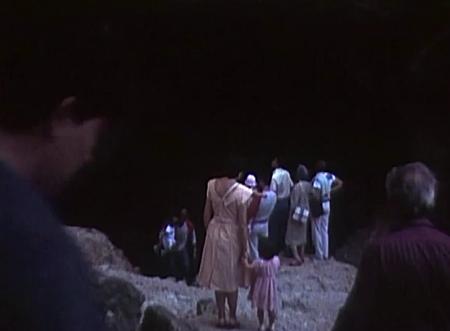
La Vallée Close
short clip
youtube
La Vallée close
Jean-Claude Rousseau in conversation
with Cyril Neyrat
edited and translated by David Phelps
Lumen
Cyril Neyrat: What did you like about, what attracted you to this place?
Jean-Claude Rousseau: I don’t know. The void. Definitely the mystery. And above all a path that leads nowhere, that comes up against a cliff, from the depths of which a river emerges. A hole water comes out of… The enclosed valley, for me, was this place where distance is lost, without perspective but with endless depths. A picture that, on each bank of the Sorgue, could accommodate the figures of Giorgione’s The Tempest. To be there was to enter its frame.
…So it was the need to film that made you decide to set up the camera and do a take.
It was the result of being captivated. It’s like the same for all my films, those from before and after. The captivation is in seeing, but in the sense of the word “vision,” when you see without seeing, when to see is like losing your sense of sight. That’s what it is to see the image. Without thinking about it, to isolate within the field of vision what’s already there as the image. The image above all is in framing. Thinking doesn’t determine my gaze, so I can’t say for certain, but it seems likely that the image has revealed itself before I’ve even put the camera on its stand, and all I have to do is double-check it in the viewfinder. It’s definitely a captivation––a shock––that makes us stop, that seizes our gaze.
What do I gaze at? At nothing describable, that one can observe and detail. To detail the shot would be to lose the image. I’m thinking of that beautiful preface to the book of geography, but which, as a passage, couldn’t be appropriated into the film. It’s a question of observation; the goal of the textbook is evidently to teach children and to stimulate their observation with the pictures. But to observe isn’t to be seized by the image. It’s to seize but not to be seized. The lengthiness of the shot corresponds to this gaze that doesn’t interpret, that doesn’t insist on a motive, but that is a pure vision, as we say, “to have visions.” This goes back to those disorienting moments where someone you’re with seems “out of it,” when his vision’s taken him somewhere else. And when you ask him, then, “what are you looking at?” it’s always the same reply: “nothing.” Suddenly he’s there again, as if the question had broken a charm. That’s what it is to see the image: it’s an absence....(more)
_______________________
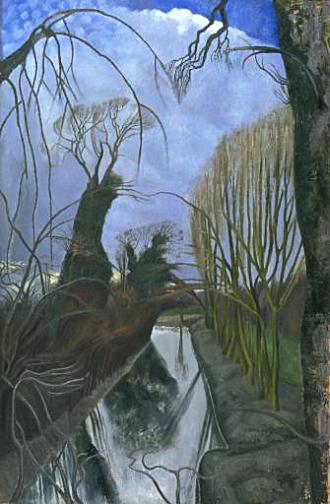
The Moat
Grange Farm, Kimble
John Nash
b. April 11, 1893
_______________________
I Want to Think: POST-U
Franco Berardi Bifo
e-flux
Poison
While the Japanese tragedy has exposed the poisonous effects of the subjugation of knowledge by an obsession with capitalist accumulation, we should be able to consider what possibilities remain available for creating an autonomy for knowledge from capitalism in the future. We should be able to imagine a pathway for knowledge workers to self-organize, and we should be able to create the institutions, or models for future institutions, of knowledge production and transmission. The complex mutation of knowledge production and transmission, and the related transformation—or devastation—of modern institutions of education, has been a crucial outcome of financial dictatorship in the sphere of semiocapital.
(....)
Margins
Those who do not recognize the primacy of the economic principle in the field of education—and who refuse to worship the central dogma of the neoliberal church and its rules of competition, profitability, and compatibility—are labeled as skeptics, non-believers, atheists, and subsequently marginalized and expelled. A new process is now emerging from the margins, from the spaces outside of the jurisdiction of this new order.
...(more)
_______________________

A Path through Trees
John Nash
circa 1915
_______________________
Jacket2 is live
Jacket2 reissues
Alcheringa Archive
A Journal of Ethnopoetics
1970-1980
edited by Dennis Tedlock and Jerome Rothenberg
_______________________
Triple Canopy
Issue 11: Default Environments
_______________________
The Information Essay
The Editors
n+1
Just as this is an age of great wealth inequality, it is also an age of great inequality of knowledge or, more exactly, factual information. For all its democratic potential, the fact-filled internet has only heightened the pre-Google asymmetry between those, on one side, loyal to Baconian methods of patient, inductive gathering of facts?—?the ways of the card catalog and the archive, of the analysis and evaluation of empirical data?—?and those, on the other side, who didn’t need to read Foucault or the Frankfurt School to nurture a suspicion that positivist orders of knowledge mask a hierarchy of power in which they are meant to occupy the lowest rungs.
It’s the Republican Party’s deliberate disinformation strategy, more than any properties inherent in so-called information technologies, that has created these two parallel Americas. In one of them, weapons of mass destruction were found in Iraq, climate change is a patent hoax, and the Laffer curve is the most basic truth of economics. As for the inhabitants of the other universe?—?“the reality-based community” of old-fashioned skeptics and empiricists, frequenters of public and university libraries, readers of the New York Times and of Elizabeth Kolbert in the New Yorker, avid perusers of Harper’s Index and WikiLeaks — we possess ever vaster quantities of mostly accurate facts, and not much sense of what to do with them. Data data everywhere, and not a thought to think! Outside of a hedge fund or the CIA, there aren’t too many places where knowledge is power. Much of the time, intellectually and politically, knowledge is powerlessness....(more)
_______________________
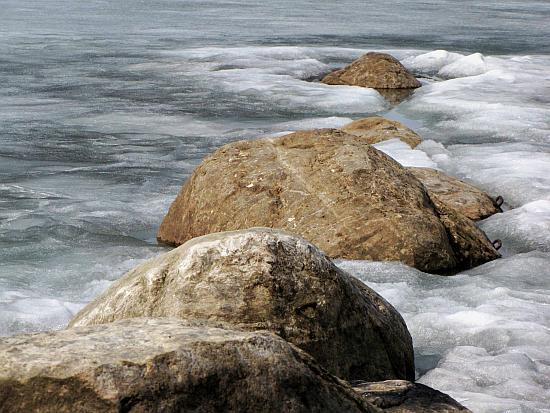
Shirley's Bay
Ottawa River
photo - mw
Shirley Bay Lookout StationDetecting UFOs in the 1950s
Pioneering Technology at Shirleys Bay
Communications Research Centre Canada (CRC)
Defence (R&D) Canada - Ottawa (DRDC)
Canadian Space Agency (CSA)
Canadian Forces Experimentation Centre (CFEC)
Canadian Forces Electronic Warfare Centre (CFEWC)
Industry Canada's Certification and Engineering Bureau (CEB)
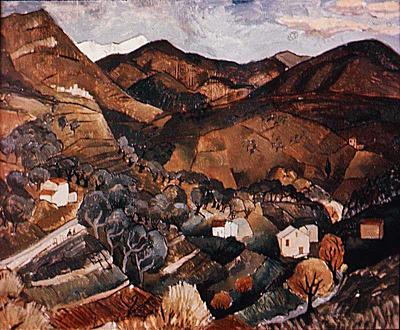
Landscape, Vence
c.1927
Christopher Wood
b. April 7, 1901
_______________________
Melancholy. As any Elizabethan could tell you if they all weren't dead, melancholy is a far richer and more complex ailment than simple depression. There is a generous amplitude of possibility, chances for productive behavior, even what may be identified as a sense of humor. Barthelme's was a specifically urban melancholy, related to that look of immunity to joy or even surprise seen in the faces of cab drivers, bartenders, street dealers, city editors, a wearily taken vow to persist beneath the burdens of the day and the terrors of the night. Humor in these conditions leans toward the anti-transcendent -- like jail humor and military and rodeo humor, it finds high amusement in failure and loss, and it celebrates survival one day, one disaster, to the next.
- Thomas Pynchon, Introduction to The Writings of Donald Barthelme
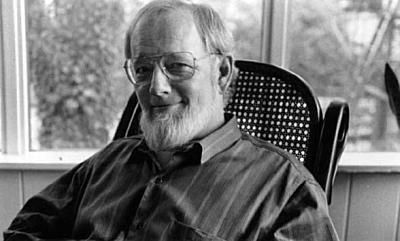
Donald Barthelme
b. April 7, 1931
photo: Wendy Watriss
Donald Barthelme's barthelmismo
jessamyn
The Rise of Capitalism
Donald Barthelme
The first thing I did was make a mistake. I thought I had understood capitalism, but what I had done was assume an attitude -- melancholy sadness -- toward it. This attitude is not correct. Fortunately your letter came, at that instant. "Dear Rupert, I love you every day. You are the world, which is life. I love you I adore you I am crazy about you. Love, Marta." Reading between the lines, I understood your critique of my attitude toward capitalism. Always mindful that the critic must "studiare da un punto di vista formalistico e semiologico il rapporto fra lingua di un testo e codificazione di un -- " But here a big thumb smudges the text -- the thumb of capitalism, which we are all under. Darkness falls. My neighbor continues to commit suicide, once a fortnight. I have this suicides geared into my schedule because my role is to save him; once I was late and he spent two days unconscious on the floor. But now that I have understood that I have not understood capitalism, perhaps a less equivocal position toward it can be "hammered out." My daughter demands more Mr. Bubble for her bath. The shrimp boats lower their nets. A book called Humorists of the 18th Century is published. ...(more)
_______________________
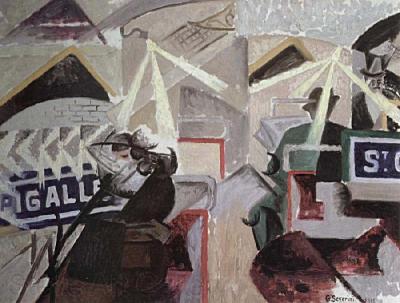
le nord sub
c.1913
Gino Severini
b. April 7, 1883
_______________________
Why So Many Americans Hate Obama
Joel S. Hirschhorn
The first is the increasingly recognized but painful reality that in almost all respects that matter to citizens the USA is no longer the great nation it once was. As a recent Time magazine issue proclaimed, especially a great essay by Fareed Zakaria, the US is in decline, similar to what happened to other once dominant nations. The Great Recession and the huge numbers of unemployed, underemployed, foreclosed, homeless, hungry and other pained citizens have drilled into the public consciousness that America is like a terminally ill cancer victim. There is little realistic hope for truly better times. For example, new research data show that upward mobility in the US is now worse than in a number of other industrialized countries, such as France. The American Dream, in other words, is dead. The game is lost.
(....)
In the history of American presidents Obama defines a historic inflection point, namely when white Americans have lost their majority status to minorities, notably blacks and Hispanics. The first African-American president with a foreign name represents a remarkable departure from history, not just our line of presidents but something much larger for American society. He won the presidency because non-whites, not whites, voted so strongly for him.
Put the two historic inflection points together. The US has lost its greatness and at the same time American society has shifted from a white to a darker skin character.
Those Americans, who harbor so many strong negative feelings towards Obama in their own minds, either explicitly or implicitly, create causality between the two inflection points. In other words, the loss of national greatness is blamed on the loss of a white, Caucasian society. This is far different than ordinary racism. It runs deeper. This explanation also helps explain why so many of the people who reject Obama do not see themselves as racists. No, with my explanation it is better to see all the anger and hatred about Obama as connected to a patriotic, nationalistic frame of mind. Of course, Obama-hating people have put the blame on the wrong people. The single most powerful reason why the US has declined is its capture by a white-dominated corporate dictatorship and wealthy upper class....(more)
_______________________
from Kopenhaga
Grzegorz Wróblewski
translated from the Polish by Piotr Gwiazda
PEN America
(....)
Cactuses. They know all about our money troubles. (They have all our ex-lovers by heart!) They grow fastest when we are not at home.
What terrifies me in Denmark (the land of Bohr and Kierkegaard, a caring and tolerant state, a state with a high standard of living, etc.)? What terrifies me is homo sapiens. Also in Wilanów and other wholly innocent corners of the earth. What terrifies me is homo sapiens.
...(more)
_______________________

Vanessa Bell
d. April 7, 1961
_______________________
Review of Maurice Blanchot, Political Writings: 1953-1993
trans. and with an introduction by Zakir Paul
John McKeane
(....)If the proposition that ‘everything is political’ defined an era of thought for Lacoue-Labarthe and Nancy, the paradoxical effect is that this extension of the domain of the political means that the political itself loses its specificity : ‘the political becomes non-apparent (it has the obviousness of what “goes without saying”) and [...] its non-apparency is in direct proportion to its omnipotence. And vice versa. This is what caused us to discuss the “withdrawal [retrait] of the political” as part of the same phenomenon’. Thus it is by questioning the ubiquity of the political, the ‘everything is political’, that it might be possible to make the retrait (withdrawal) a retrait (a treating anew). And Blanchot’s translated Political Writings seems an excellent place to start.

Taliesin
1930 ca.
Wisconsin Historical Images
_______________________
Suddenly here, fully present
Aila Meriluoto
(born 1924)
Translated by Hildi Hawkins
new poems, from Tämä täyteys, tämä paino (‘This fullness, this weight’)
We live in strange times
my skull full of echoes.
The rose has throbbed
the heart flowered.
In the mirror a girl on her head,
from the wall steps an old woman,
all of them familiar,
none remembered.
Suddenly here.
Fully present.
Eighty-five years.
Hands wrinkled, shaky legs.
And alive to the brim.
And over. Dripping.
Surging.
Introduction by Mervi Kantokorpi
Books from Finland
_______________________
Galatea Resurrects #16 (A Poetry Engagement)
Editor: Eileen Tabios
Sonnets by Camille Martin
reviewed by Marianne Villanueva
In the hands of the right poet, the individual word holds more power than entire pages of prose. I am reminded of this as I read Camille Martin’s rigorous and uncompromising second collection, Sonnets. These poems, notwithstanding the beguiling title Sonnets and the rather decorous subjects we associate with the form, are torqued high. The “I” of the poet trembles, is fearful, is palpably fragile. There are pieces in which each word seems like a little explosion, as in these lines from one of the final poems, “jetsam archive”: “still at funnel wake/, braided unction stomachs no/ crime … “...(more)
SonnetsCamille Martin shearsman
Camille Martin blogs at Rogue Embryo
_______________________

“I am half sick of shadows,”
said the Lady of Shalott
1915
John William Waterhouse
1849 - 1917
_______________________
'I don't know,' I cried without being heard, 'I do not know, If nobody comes, then nobody comes. I've done nobody any harm, nobody's done me any harm, but nobody will help me. A pack of nobodies. Yet that isn't all true. Only, that nobody helps me - a pack of nobodies would be rather fine, on the other hand. I'd love to go on an excursion - why not? - with a pack of nobodies. Into the mountains, of course, where else? How these nobodies jostle each other, all these lifted arms linked together, these numberless feet treading so close! Of course they are all in dress suits. We go so gaily, the wind blows through us and the gaps in our company. Our throats swell and are free in the mountains! It's a wonder that we don't burst into song.' Franz Kafka: Excursion into the Mountains
courtesy of Tom Clark
see also Franz Kafka: Up in the Gallery
_______________________

Taliesin I
1912 ca.
Henry Fuermann and Sons
Wisconsin Historical Images
_______________________
Inequality
Of the 1%, by the 1%, for the 1%
Joseph E. Stiglitz
When you look at the sheer volume of wealth controlled by the top 1 percent in this country, it’s tempting to see our growing inequality as a quintessentially American achievement—we started way behind the pack, but now we’re doing inequality on a world-class level. And it looks as if we’ll be building on this achievement for years to come, because what made it possible is self-reinforcing. Wealth begets power, which begets more wealth. During the savings-and-loan scandal of the 1980s—a scandal whose dimensions, by today’s standards, seem almost quaint—the banker Charles Keating was asked by a congressional committee whether the $1.5 million he had spread among a few key elected officials could actually buy influence. “I certainly hope so,” he replied. The Supreme Court, in its recent Citizens United case, has enshrined the right of corporations to buy government, by removing limitations on campaign spending. The personal and the political are today in perfect alignment. Virtually all U.S. senators, and most of the representatives in the House, are members of the top 1 percent when they arrive, are kept in office by money from the top 1 percent, and know that if they serve the top 1 percent well they will be rewarded by the top 1 percent when they leave office. By and large, the key executive-branch policymakers on trade and economic policy also come from the top 1 percent. When pharmaceutical companies receive a trillion-dollar gift—through legislation prohibiting the government, the largest buyer of drugs, from bargaining over price—it should not come as cause for wonder. It should not make jaws drop that a tax bill cannot emerge from Congress unless big tax cuts are put in place for the wealthy. Given the power of the top 1 percent, this is the way you would expect the system to work.
Class Warfare ScorecardMike Whitney
_______________________
The Forgotten Fascist Roots of Humanitarian Interventionism
100 Years of Bombing Libya
Mark Almond

photo - mw
_______________________
Appeal to the Grammarians
Paul Violi
1944 – 2011
We, the naturally hopeful,
Need a simple sign
For the myriad ways we're capsized.
We who love precise language
Need a finer way to convey
Disappointment and perplexity.
For speechlessness and all its inflections,
For up-ended expectations,
For every time we're ambushed
By trivial or stupefying irony,
For pure incredulity, we need
The inverted exclamation point.
For the dropped smile, the limp handshake,
For whoever has just unwrapped a dumb gift
Or taken the first sip of a flat beer,
Or felt love or pond ice
Give way underfoot, we deserve it.
...(more)
Paul Violi at EPC and PennSound
_______________________
Contact [PDF]
Alphonso Lingis
Janus Head
When someone there is standing before us, we have been cautioned that he is not speaking with his own voice but speaking the language of his gender, his family, his class, his education, his culture, his economic and political interests, his unconscious drives, indeed his state of physical health and alertness. Are we then doing no more than interpreting what he says and does? Do we ever make contact with what he means for himself when he says “I”—with his visions, the story he tells himself of his life?
What an extraordinary power, this power of the voice to put us in contact, not with our own mental images but with persons and things themselves!
We catch on to the purring of the kitten, the frantic cries of the bird, the snorting of the distrustful horse, the complaint of the caged puma. We pick up the tone of the blackbird marsh, the hamlet meditating in the Himalayan mountainscape, the shifting dunes under twilight skies. As our words form, the tone of these things and events resounds in our voice. The pacing and accents of our phrases express the calm or the frenetic movement, the rhythm and periodicity or jerks and explosions of the things and events. Our words articulate the agitated tone of a column of ants, the syncopation of the dockworkers unloading a ship, the purple majesty of the Pacific ocean under dawning Madagascar skies. Our words reverberate the tone of a cave, a cathedral, a dance, the pacing, the rhythms, the expanse, they return the muffled or dead silence. ....
Janus Head - Philosophical PracticeVol. 8, No. 2 Winter 2005
Essays by Margret Grebowicz, Alphonso Lingis, Seth Huebner, Bert Olivier, John M. Desmond, Robert D. Walsh, Peter B. Raabe, Robert Scott Stewart, Jana Milloy, Stuart Grant, Tom Strong & Andy Lock, Louis Sandowsky, Mike Kantey, & Jonathan Diamond
Interview with Alejandro Jodorowsky
Photography by Syrie Kovitz
Art by Uwe Schmidt-Hess and Doc Ross
Poetry by Tomas Tranströmer, Laurelyn Whitt, Robert Gibbons, Claire Barbetti, Richard Hoffman, Jonathan Monroe, & Sarah Biggs
_______________________

Enfant ą la cage
Antonio Clavé
1949
_______________________
from
Zones of a Non-Linear Discourse on the Red Seal
Robert Kelly
(....)
5.
to make the mind disgorge
its buried darknesses
to make the dark speak
without trying to turn it
into the presumptuous light
like honoring the dream
by dreaming it
by carrying it around by day
by reading/re-reading it
not by interpretation
but by dwelling with
because reading a book is dreaming someone else’s
I mean to enter the caves -- whether Lascaux or language -- and come out with a decent dark thing, a word or poem,
That does not presume to interpret what was found down in there
But is itself the fruit of that sweet encounter with the, in the, dark.
Anthrōpos pantōn metron said the Greeks,
The human is the measure/means of all things,
What was carved on the rock wall
Speaks in us now.
...(more)
_______________________
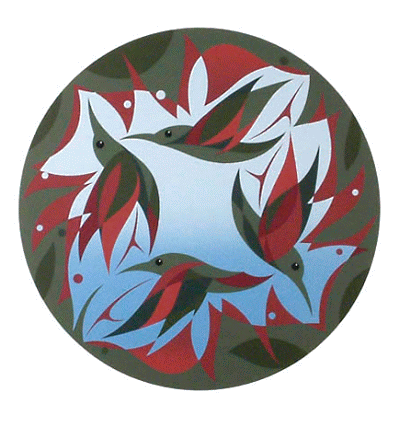
Pacific Spring
Susan Point
(Coast Salish)
Northwest Coast
b. April 5, 1952
1 2 3
_______________________
Poetry Month: Daily Poems at the Boston Review
Saint Days
Ange Mlinko
boston review
(....)
And when I make much ado
about calling my father
and encountering his dementia
while looking across the room,
to catch my son,
and my father in his face,
then I remember the Mary
who conjured snow
on the fifth of August,
marking her territory.
I’m blown into parataxis
with relation to a red leash
and a schnoodle’s fugue.
He says, I’ll raise you a black sheep
from a lamb shadow.
...(more)
Ange Mlinko at Poetry International Web and the Poetry Foundation
_______________________
On the Politics of Pastiche and Depthless Intensities
Thomas de Zengotita
Hedgehog Review
(....)
Consider all the outlandish costumes, the signs, the atmosphere of carnival—sometimes it’s an intensity of rage, sometimes of weepy nostalgia. But, either way, these aging representatives of Nixon’s silent majority are silent no more. They have joined the postmodern age at last—in the very act of refusing to be silent, in the very act of putting on their show. It is no accident that, from a sufficiently disinterested distance, they look like something Abby Hoffman might have thrown together for a Yippie happening back in 1969. As striking an instance of political specular doubling as you could ask for. And despite the relentless emphasis on history, the references to it are a breathtakingly shallow exercise in depthless surfing that might have been designed to illustrate the basic Jamesonian concepts. Could there be a trope more completely bereft of historicity, a more shameless exercise in pastiche than Congressman Todd Akin’s widely circulated account of the first Thanksgiving as a moment when the pilgrim fathers repudiated socialism?...(more)
_______________________
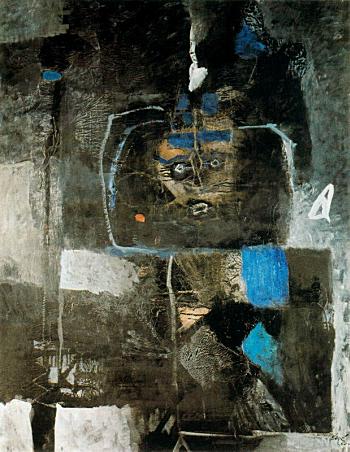
Le mercenaire
1960
Antonio Clavé
b. April 5, 1913
209 images
_______________________
Why Climate Change Is So Threatening to Right-Wing Ideologues
Naomi Klein
"Climate change challenges everything conservatives believe in. So they're choosing to disbelieve it, at our peril."
Enter the Anthropocene—Age of ManElizabeth Kolbert national geographic
It’s a new name for a new geologic epoch—one defined by our own massive impact on the planet. That mark will endure in the geologic record long after our cities have crumbled.
_______________________
James Johnson has a review of Rebecca Solnit's A Paradise Built in Hell: The Extraordinary Communities that Arise in Disasters in Invisible Culture Issue No. 16: The Cultural Visualization of Hurricane Katrina
_______________________

photo - mw
_______________________
Eric Elshtain on Beard of Bees
12 or 20 (small press) questions with rob mclennan
.....................................................
Beard of Bees is an independent, free press in Chicago, Illinois.
Beard of Bees is committed to publishing quality chapbooks by liberated poets from Anywhere. We do not discriminate against non-human or post-human artists.(....)
... all Beard of Bees publications are freely downloadable and freely redistributable. If you like something you find here, share it with a friend. If you find something that you hate, savor the moment of destruction as you delete the file. Or share it with an enemy.

sap lines
Lanark county
photo - mw
_______________________
The Perfect Translation, Impossible Dream (Part Two)
Brother Anthony of Taizé (An Sonjae)
A paper presented at a conference about translation held in Dongguk University, Seoul, November 29, 2008
presented by Jerome Rothenberg
(....)Ricoeur also points out: translation is the process by which any human person ‘understands’ any other human person. We are all of us translators, from the day of our birth, learning to read between one another’s lines, grasp the meaning of the everyday unsaid, sense the implications of ironic or other tones. Ricoeur rightly says that, strictly speaking, the diversity between languages is such that, in theory, translation is not possible at all, there being no definable community of structure or vocabulary between one language and the next. The answer to that is that translation happens, and has always happened, even when there were no dictionaries. People can understand each other very well when they want to, or need to, and dealing with margins of misunderstanding is a standard part of everyone’s life. It is always vexing for a translator of any language to be accused of ‘getting it wrong,’ because we are so aware of the impossibility of getting it right that we would rather be congratulated on getting it much less wrong than we might have done. We are the first to know that there can be no perfect translations. We remember, and we mourn. We are human....(more)
Brother Anthony of Taizé (An Sonjae): The Perfect Translation, Impossible Dream Part One
_______________________
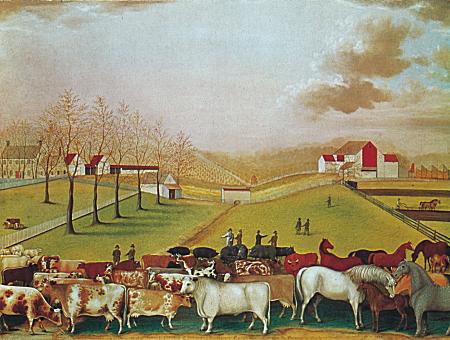
The Cornell Farm
1848
Edward Hicks
(April 4, 1780 – August 23, 1849)
_______________________
Ambrose Bierce once described the imagination as "a warehouse of
facts, with poet and liar in joint ownership." With that in mind, we dedicate
this book to all those who steal moments from the weight of the present to
dream and dance towards a better tomorrow. All the poets, liars, dreamers,
heretics, and brethren of the new free spirit, cheers to you.
Constituent Imagination. Militant Investigations // Collective Theorization Stevphen Shukaitis, David Graeber (eds.) (2007) available at Monoskop/log and google books
This is not a book that has been designed to sit on a shelf; its primary
purpose is not to be used as a citation or reference in important sounding
journals that no one reads. It is a text intended for use as a tool to gather
experiences, examples, and materials that can further the development of
the constituent power of lived imagination that will transform the world
around us.
Militant research is not a specialized task, a process that only involves
those who are traditionally thought of as researchers. It is an intensi? ca-
tion and deepening of the political. Militant research starts from the under-
standings, experiences, and relations generated through organizing, as both
a method of political action and as a form of knowledge. _______________________
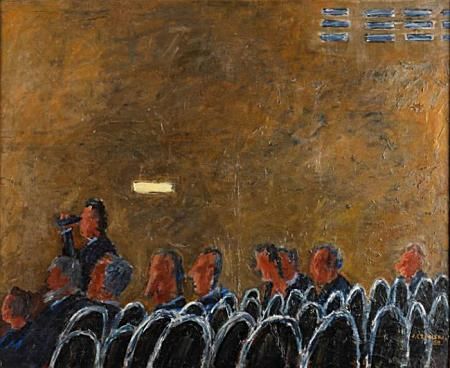
Józef Czapski
b. April 3, 1896
_______________________
Language > Place – Edition #5
carnival hosted by Parmanu
_______________________
My Way: Speeches and Poems
Charles Bernstein
April free e-book from the University of Chicago Press
_______________________
Photography & Society
Gisčle Freund
translated by David R. Godine
first published in France in 1974
ifile pdf
_______________________
Empire of Signs
Roland Barthes
ifile pdf
The Unkown Language
The dream: to know a foreign (alien) language and yet not to understand it: to perceive the difference in it wlthout that dilference ever being recuperated by the superficial sociality of discourse, communication or vulgarity; to know, positively refracted in a new language, the impossibilities of our own; to learn the systematics of the inconceivable; to undo our own "reality" under the effect of other formulations, other syntaxes; to discover certain unsuspected positions of the subject in utterance, to displace the subject's topology; in a word, to descend into the untranslatable, to experience its shock without ever muffling it, until everything Occidental in us totters and the rights of the "father tongue" vacillate -- that tongue which comes to us from our fathers and which makes us, in our turn, father and proprietors of a culture which, precisely, history transforms into "nature."
(....)
_______________________
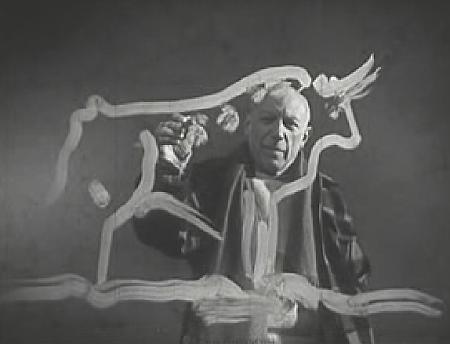
Visite ą Picasso
(1950)
Director: Paul Haesaert
20 min. - ubu
_______________________
UbuWeb Top Ten for April 2011
Selected by Jay Sanders
_______________________
Experiment, for me, is not a formal tic, some avant-garde glaze or fashionista look. It is a processual question of writing some thinking into the page in the medium of language.
A visionary practice of cultural critique
interview with Rachel Blau DuPlessis
...desires to change culture and politics often get mapped onto languages and conventions that already exist. This, sometimes, for the sake of "efficiency" or even "communicability." Like the joke about socialist realism—instead of boy meets girl, it's boy meets tractor. But some structure of feeling remains—"boy meets…" hasn't changed; the romance hasn't changed. Just the object has changed. This kind of syncretism is both powerful and absorptive (like Catholicism assimilating pagan and polytheistic holidays and materials), but it may mean that fundamental structures of genre, language, convention are not destabilized or restructured but just undergo point-for-point substitution. That's why a person can't assume that political radicalism means or implies literary radicalism. They are separable goals. (....)
... my decision to write long poems comes from my desire to encircle the lyric, to transform the female cultural position in Poetry as a whole. The containment of lyric, its attractive smallness, its iconic status seem to help constitute the subordinate cultural position of females. That this is somewhat tendentious and polemical as a position did not make it any less powerful for me. Recently, I have also felt that the structure of epiphany and revelation in lyric poetry has relation to a Christian structure of feeling that has transferred itself to claims about poetic form. I find that, as an alternative, I am invested in a Jewish tradition of textuality that involves continuous commentary and gloss. I say this, by the way, as unredeemedly, proudly secular in my spiritual allegiances....(more)
_______________________

sap's running
photo - mw
_______________________
Precarious Rhapsody: Semocapitalism and the Pathologies of the Post-Alpha Generation
Franco "Bifo" Berardi
(2009)
pdf at Monoskop/log »
An infinite series of bifurcations: this is how we can tell the story of our life, of our loves, but also the history of revolts, defeats and restorations of order. At any given moment different paths open up in front of us, and we are continually presented with the alternative of going here or going there. Then we decide, we cut out from a set of infinite possibilities and choose a single path. But do we really choose? Is it really a question of a choice, when we go here rather than there? Is it really a choice, when masses go to shopping centers, when revolutions are transformed into massacres, when nations enter into war? It is not we who decide but the concatenations: machines for the liberation of desires and mechanisms of control over the imaginary. The fundamental bifurcation is always this one: between machines for liberating desire and mechanisms of control over the imaginary. In our time of digital mutation, technical automatisms are taking control of the social psyche.

photo - mw
_______________________
A Selection of Poems from Under the Azure
Francis Jammes
translated by Janine Canan
exquisite corpse
Spring Night
There are signs, in the heavens, but what sort of signs?
When will we understand the language of God
in that vast and tangled ants’ nest
of triangles traced through points of light?
Never did I feel more isolated than when I lifted
my eyes toward the blue, milk-stained night
without anything on earth to provide
a landmark as my spirit departed.
What is this gold and vermillion atlas,
more frightening even than Columbus’,
with its ocean from which the Earth embarks?
We know the day of the great shipwreck is coming.
While we wait, let us do as the nightingale does,
at the top where everything ends, stretching his neck
so Paradise may listen at leisure to his song—
naked, solitary, anxious, sad and tender.
Francis JammesPoet of the Pyrenees b. 1868 introduced and translated by Janine Canan
Holy Mud
I know the mystery
of your genius, oh heart!
A clod of earth
mixed with some tears.
...(more)_______________________

Les Pont des Arts
1900
Robert Demachy
(1859–1936)
1 2 3 4 5
_______________________
To Doubt
John Latta
Pretty soon the dud
recompense of a formula
declares itself and is
avail’d of. The rest
is just the bric-
a-brac of whatever
dependency urges up one’s
brio, or whatever urgency
descends down out of
the sky-fill’d sky.
Phenomenally tumid doubt pricks
the mild audacity of
a hint of quince-
...(more)
_______________________

photo - mw
_______________________
Writing from Quebec
Words without Borders
April 2011
from “The Window of Time”
Hélčne Dorion
Translated from French by Jonathan Kaplansky
IV.
You dream of cities not eroded
by time, of forests
that form immense paths,
you dream, and on the sea
the masts of ships
gnaw away at white stones,
the swell chafes the shore,
you dream, but dawn still takes a long time
to blow upon the ruins,
shadows crash
against the flesh of houses,
rattle the fragile frames
of windows through which you see
a bit of hope, you believe,
as slowly as a poem is constructed
inside yourself,
you gather these places one by one,
these faces, you touch love,
everything that can still be true
and beautiful, like a promise.
...(more)
_______________________
Comprehensive slang immersion
Maud Newton on Jonathon Green's three vol. Dictionary of Slang
_______________________

photo - mw
_______________________
The Triumph of Culture
Glyn Banks and Hannah Vowles
ctheory
(....)
At the beginning of the end of Modernity, French philosopher Jean-Francois Lyotard, commenting on the emergence of post-modernity in relation to the concept of progress, from a perspective rooted firmly in heroic Modernity however, pointed out regarding science and technology that: "All of us can see that development takes place without leading to the realisation of any of these dreams of emancipation."
Whilst all of the historic 'unfinished' utopian impulses and movements of Modernity lie in ruins, the language of the 'grand narratives' now merely the slogans of advertising, it is deeply ironic that it is the 'subversive' strategies of modernity which have come to fruition through this Triumph of Culture. ...(more)
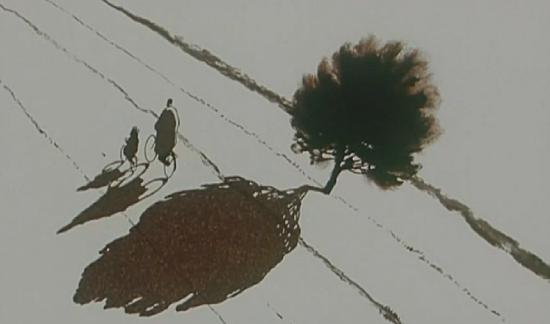
Father and Daugher
animated short
9:23
Michaėl Dudok de Wit
340 Free Movies Online
Open Culture
_______________________
Detachment
Michel Serres
Translated from the French by Genevieve James & Raymond Federman
mediafire pdf
Trees of Death, The Tree of Life
Trees of Death
I barely dream more than once or twice a year, my nights are dark, my days full of meaning, I only dream in the middle of the day, I dream by trade, laborer, artisan, goldsmith. However one rare night, I did dream I was in a forest, it was, I recall, in India, I was walking amidst gigantic trees and suddenly I found myself in front of an enormous tree trunk. It divided its space in all directions, each branch, each ramification ending with an animal, a lion, a bear or a leopard. That single tree was in itself a forest of tigers, giraffes, pandas and wolves. There were many wild beasts, all very mighty and powerful. Each tree limb sprouted forth to become the backbone of an animal. Each moved a little, while remaining linked, since its body, from the bottom or from the back, identified with the timber of the tree. It was terrifying, hideous like Medusa's head bristling with snakes, the entire hair of this fleshy flaming bush bustled, contorted and growled. Noah's complete Ark as vegetation came out from the earth upon the spine of that trunk. It was terrifying but very gentle. Richness, satisfaction and plenitude emanated from this plant, it overwhelmed me. Even the wild beasts arched their backs. It seems to me I always knew wood was made of flesh, and if branches did bifurcate, flesh had to change its species. This multiple assemblage of regulated madness gave me rapture, a great peaceful rejoicing. I never forgot that tree, that glowing reproductive bouquet of life. That great animal plant is the tree of the species. It is the tree of life, perhaps I found the tree of knowledge.
_______________________
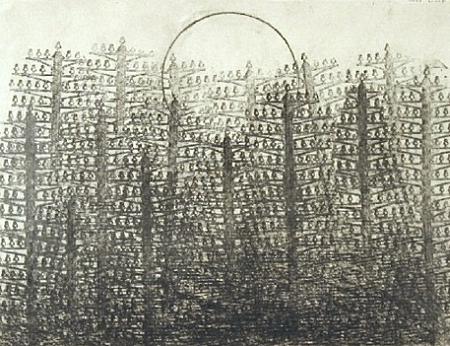
Forest and Sun
Max Ernst
1931
_______________________
Foraging for Wood on the Mountain
Jack Gilbert
The wild up here is not creatures, wooded,
tangled wild. It is absence wild.
Barren, empty, stone wild. Worn-away wild.
Only the smell of weeds and hot air.
But a place where differences are clear.
Between the mind’s severity and its harshness.
Between honesty and the failure of belief.
A man said no person is educated who knows
only one language, for he cannot distinguish
between his thought and the English version.
Up here he is translated to a place where it is
possible to discriminate between age and sorrow.
_______________________
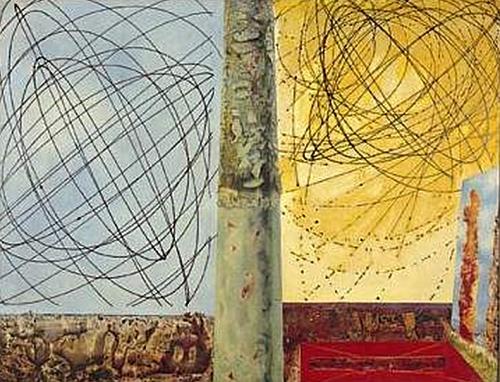
The Bewildered Planet
1942
Max Ernst
(2 April 1891 – 1 April 1976)
_______________________
Conference of the Birds
A weekly podcast of music from Africa, Asia, Europe, the Middle-East, the Americas, and places between and beyond. New, rare, and hard to find recordings are featured, with an emphasis on cross-cultural exploration and experimentation. Hosted by Stephen Cope
_______________________
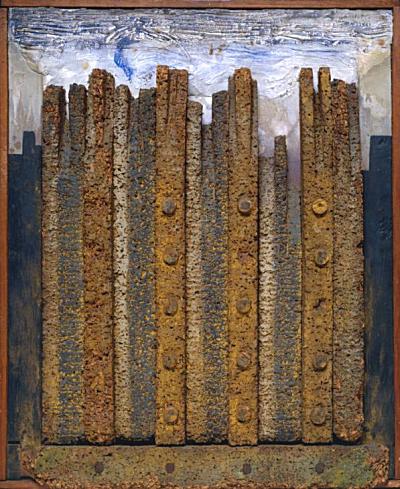
Dadaville
circa 1924
Max Ernst
_______________________
The Quick-Change Artist
The miscellaneous prose of novelist, memoirist, critic, and first-class noticer Geoff Dyer.
Luc Sante
bookforum
All of Dyer's work holds together very well indeed, but what holds it together is a voice, which becomes a persona. It's a very English, low-key, plainspoken, unassuming voice that invites you in, and can become intimate but not too intimate, and can smoothly transit between comedy and gravity. It takes on flesh in his reported pieces and personal essays and some of his fiction, and there it is often richly and sometimes darkly comic—self-deprecating, stubborn, canny, forlorn, worldly, hapless, serious, romantic, dissipated.
(....)
Most writers, even today, begin with the shape and size of the container they wish to fill—the novel, the memoir, the book of reportage—and proceed to cut their material to suit. Dyer (like West and an interestingly scattered line of writers from George Borrow to Blaise Cendrars to W. G. Sebald) allows the material to determine the form. This strategy, always risky and volatile, among other things prevents the conclusion of a writing project from ever being foregone. About But Beautiful, he notes: "If I'd known what I needed to know before writing the book, I would have had no interest in doing so. Instead of being a journey of discovery, writing the book would have been a tedious clerical task, a transcription of the known." But he's the sort of writer who follows art critic Harold Rosenberg's suggestion: "Loiter in the neighborhood of a problem. After a while a solution strolls by." When you take that approach seriously you maybe stand a chance of being, as Dyer is often blurbed, "unclassifiable."...(more)
_______________________
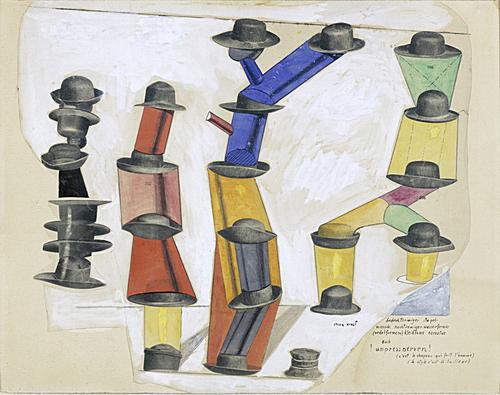
The Hat Makes the Man
Max Ernst
1920
_______________________
Knowing I Live in a Dark Age
Milton Acorn
March 30, 1923 - August 20, 1986
Knowing I live in a dark age before history,
I watch my wallet and
am less struck by gunfights in the avenues
than by the newsie with his dirty pink chapped face
calling a shabby poet back for his change.
The crows mobbing the blinking, sun-stupid owl;
wolves eating a hamstrung calf hind end first
keeping their meat alive and fresh...these
are marks of foresight, beginnings of wit;
but Jesus wearing thorns and sunstroke
beating his life and death into words
to break the rods and blunt the axes of Rome:
this and like things followed.
Knowing that in this advertising rainbow
I live like a trapeze artist with a headache,
my poems are no aspirins...they show
pale bayonets of grass waving thin on dunes;
the paralytic and his lyric secrets;
my friend Al, union builder and cynic,
hesitating to believe his own delicate poems
lest he believe in something better than himself:
and history, which is yet to begin,
will exceed this, exalt this
as a poem erases and rewrites its poet.
|
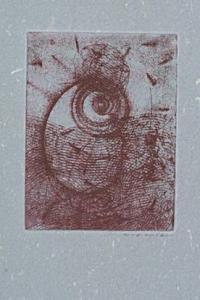
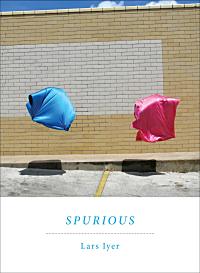


 The Age of Briggs & Stratton
The Age of Briggs & Stratton













































